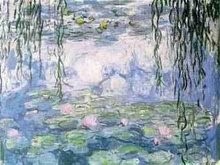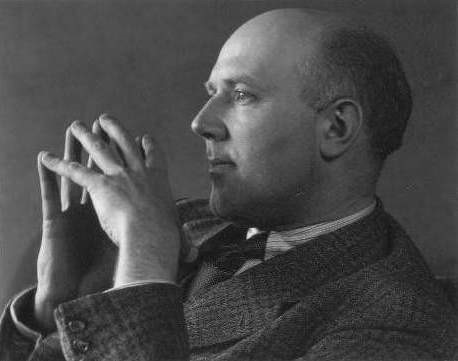Walter Gieseking
Where the Mystery is the deepest is the gate of all that is subtle and wonderful.
~ Lao Tzu, Tao Te Ching
Debussy had a very curious approach to piano technique. He taught that the keys shouldn’t be “played” – it’s the keys themselves that draw the fingers down magnetically. That’s a very Zen-like approach to touch! And it’s very revealing about how he might have interpreted his own piano works. You would likely assume from his statement that his fingers would have a constant connection with the keys and that he might prefer the fleshy part of the fingertip for its less direct sound. Except for an occasional martellato effect, he seems to desire a non-martellato sound, a sound devoid of hammers. If this is so, he may have found one of his greatest interpreters in Gieseking.
Gieseking’s interpretations of both Debussy and Ravel are legendary. They speak in a language of elves and fairies, pixies and water sprites. The first time I heard Gieseking’s celebrated recording of Ravel’s Gaspard de la nuit, I felt as if I were hearing an unknown magical instrument, anything but a piano with hammers and strings.
Gieseking has all the painterly qualities of Michelangeli, but the two couldn’t be more different. Michelangeli’s approach is superior in so many respects: it has a greater variety of color, it’s more precise in every way, more respectful of the score – you can take dictation from it! Gieseking’s interpretations are free, full of unabashed liberties. Many of the notes are so veiled that they would be hard to identify by any but the most gifted listener. He mystifies the ears, confounds reason. The notes often lack individual value; they’re grouped together for larger effect. The unexplainable in what he achieves lends him the quality of a conjurer. In the Impressionists, his special approach makes for enchanting, enthralling, unforgettable interpretations.
Gieseking had a facile memory, a large technique, and a vast repertoire. He simply played everything, the 32 Beethoven Sonatas, for example. The hardest thing about preparing the Beethoven Cycle was memorizing them. Later in the same interview, he adds, humbly, memorizing them actually came quite effortlessly. Unfortunately, they don’t say very much. Much of his recorded legacy simply disappoints. I would have thought his Rachmaninoff, for example, would be something quite special, but it’s played with little magic, little understanding.
While his discography is vast and varied, if he had simply left us with his recording of Gaspard de la nuit, he would have earned his place among the immortals. And it’s this recording that I summon whenever I try to achieve an enchanting, hammerless effect on the keyboard. How would Gieseking-playing-Gaspard realize this passage? It may seem odd, but it’s a key that has opened my mind and ears to many magical possibilities throughout the repertoire.
Milan Kundera writes, eventually everyone is reduced to kitsch. And this is what I do without apologies. I reduce an artist to his greatest quality {or qualities} and use it as a tool. On the other hand, I don’t hold their weaknesses against them, and I use what I take thankfully. Sometimes I have to wonder, though, what will I be reduced to?


